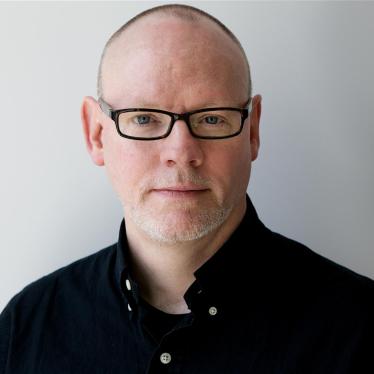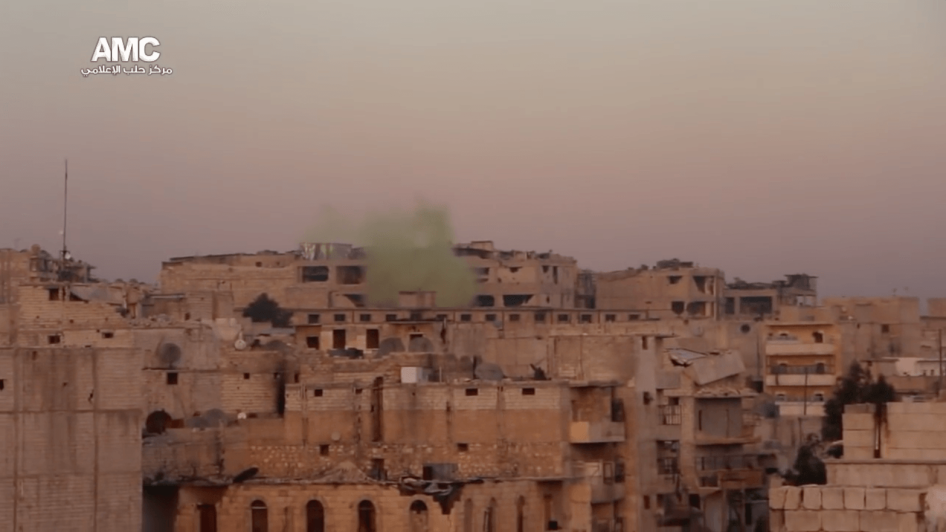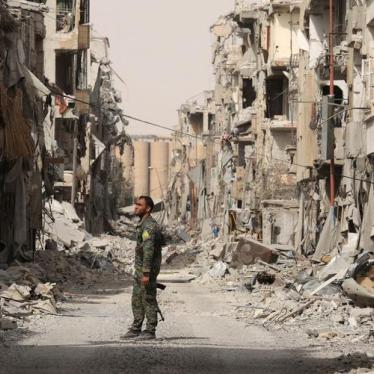Stalled international efforts to hold to account those responsible for the slew of deadly chemical weapon attacks in Syria are alive again.
In June, countries party to the Chemical Weapons Convention (CWC) agreed to develop a plan to determine who is behind specific attacks in Syria, where the government and some armed groups have repeatedly used toxic agents as weapons. The vote to authorize the director-general of the Organisation for the Prohibition of Chemical Weapons (OPCW) to prepare a plan came in the face of fierce resistance from Russia, Syria’s staunchest ally. The vote also opened up the possibility of conducting similar investigations in countries besides Syria if the need arises.
The courageous decision by delegates at a special CWC conference in The Hague came after Russia used its veto to kill an effort by the United Nations Security Council to hold those in Syria to account for the attacks that have claimed hundreds of lives.
After the Security Council created the UN-OPCW Joint Investigative Mechanism (JIM) in 2015 to determine responsibility for chemical attacks in Syria, the JIM’s investigators accused both the Syrian government and Islamic State (also known as ISIS) of repeatedly using chemical weapons in the seven-year-old conflict. After the JIM confirmed that the government was responsible for an April 2017 nerve agent attack in Khan Sheikhoun that killed dozens of people, Russia decided to put an end to those investigations using its Security Council veto. Last November, the JIM went silent and was disbanded. Russian state media and its online sycophants filled the vacuum by spreading conspiracy theories and sowing confusion.
Meanwhile, Human Rights Watch continued to receive reports of air-delivered chemical attacks by the Syrian government. The scuttling of the UN-mandated investigation appeared to green-light new chemical attacks. These attacks continued in January and February, and in April, dozens were killed by what appears to have been a chemical attack in Douma, outside Damascus.
Human Rights Watch, which has been documenting the use of chemical weapons in Syria since 2013, advocated relentlessly for a new mechanism to attribute responsibility for chemical attacks in Syria. After Russia used its Security Council veto to protect Damascus from international scrutiny, we partnered with a coalition of human rights, humanitarian and arms control groups to get a new investigation. First we asked UN Secretary-General Antonio Guterres to set up a mechanism on his authority, and later urged CWC states to create a permanent investigation mechanism at the OPCW. We warned that the longstanding ban on the use of chemical weapons was under threat due to Syria as well as nerve agent attacks in Britain and Malaysia. Governments heeded the call. Much of the credit goes to France, which first began pushing the OPCW idea, and then the French and British delegations that worked tirelessly to get delegations to show up and vote to help end impunity for using chemical weapons.
Good news on Syria is rare. But this was definitely a positive signal to the victims of these horrific weapons – that those who deploy them can be unmasked and may eventually be prosecuted. The days of Russia using its Security Council veto to suppress the truth about who is perpetrating chemical attacks in Syria are over.











